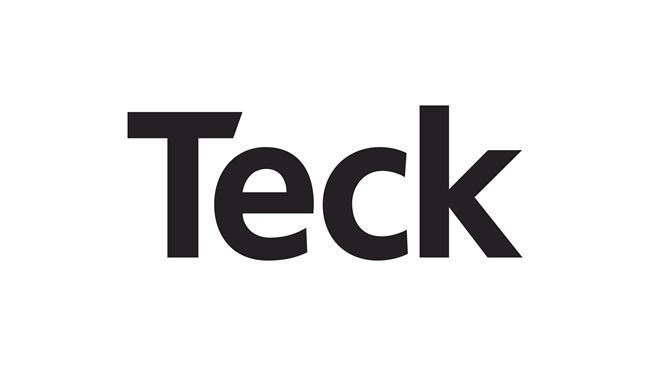Teck Resources Ltd. has announced a plan to split the company in two, separating its steelmaking coal business from its base metals operations.
In what CEO Jonathan Price described Tuesday as a "transformative transaction," the Vancouver-based mining firm said it will spin off its steelmaking coal assets to create a separate publicly traded company called Elk Valley Resources Ltd.
Teck Resources will become Teck Metals Corp., which will be a "growth-oriented" base metals company focused on copper and anchored by Teck's QB2 copper mine project in Chile, which is currently under construction and expected to double the company's copper production by 2024.
Price said the move will allow both entities to achieve their full potential. Teck Metals Corp. will play a "critical role in electrification and energy transition," Price told analysts on a conference call, by focusing on the growing global demand for base metals used in electric vehicle batteries and renewable energy installations.
Elk Valley Resources Ltd., which will hold Teck's four steelmaking coal mines in B.C., will become a pure-play producer focused on what the company believes is strong long-term demand for steelmaking coal, Price said.
"Importantly, this will provide investors with a choice," Price said.
Teck has made no secret of the fact that it believes the future of the mining industry lies with the green economy. Earlier this month, the miner exited Canada's oilsands industry, completing the sale of its 21.3 per cent stake in the Fort Hills oilsands mine near Fort McMurray, Alta. to Suncor Energy Inc. and TotalEnergies EP Canada Ltd.
Last year, it committed to achieving net-zero greenhouse gas emissions from its entire value chain, as well as across its operations.
However, the splitting of Teck has been structured in such a way that its greener, base metal-focused entity will be dependent on coal revenues for quite some time. Teck Metals will be funded by Elk Valley Resources' cash flows for what Price called a "transition period" of approximately 11 years.
Under the plan, Teck shareholders will receive 0.1 of a common share in Elk Valley Resources for each Teck share they hold plus 39 cents in cash per share.
In exchange for the coal assets, Elk Valley Resources will make quarterly payments to Teck Metals consisting of royalty payments and preferred share redemptions through a transition capital structure.
The royalty will be payable until $7.0 billion in payments have been made or Dec. 31, 2028, whichever comes later. The preferred shares will have an aggregate $4.4-billion redemption amount and a 6.5 per cent cumulative dividend.
Teck says it has also reached a deal with its joint venture partners and major customers, Nippon Steel Corp. and Posco, to exchange their minority interests in the Elkview and Greenhills operations for interests in the new company.
NSC’s exchange of its Elkview interest and a $1.025-billion cash investment will give it a 10 per cent stake in Elk Valley Resources and the transition capital structure, while Posco will receive a 2.5 per cent interest in the company and the transition capital structure for its stakes in Elkview and Greenhills.
Price said the size of Nippon Steel's investment, in particular, validates the value of the Elk Valley Resources business and speaks to what Teck believes remain robust demand fundamentals for high-quality steelmaking coal.
The separation of the two companies will require approval by a two-thirds majority vote by holders of Teck's Class A shares and Class B subordinate-voting shares, each voting separately by class.
Teck also announced Tuesday its plans to end its dual-class share structure that gives its Class A common shares 100 votes per share, while its Class B subordinate-voting shares carry one vote per share.
The company's Class A shares are currently controlled by Vancouver's Keevil family.
Under the proposal, which requires shareholder approval, each Teck Class A common share will be swapped for one new Class A common share and 0.67 of a Class B subordinate-voting share.
The new Class A shares will be identical to the current terms of Class A shares, but will automatically be exchanged for Class B subordinate-voting shares on the sixth anniversary of the effective date of the dual class amendment.
The board said the terms of the change were negotiated with holders of a majority of the Class A shares, Temagami Mining Company Ltd., SMM Resources Inc. and Norman B. Keevil.
Teck said Tuesday it will seek shareholder approval of the separation of the company at its annual and special meeting of shareholders expected to be held April 26, 2023.
Teck expects the transaction to close in the second quarter of 2023.
The changes came as Teck reported a profit attributable to shareholders of $266 million or 51 cents per diluted share for the quarter ended Dec. 31 compared with a profit of $1.49 billion or $2.74 per diluted share a year earlier.
Revenue totalled $3.14 billion for the company's fourth quarter, down from $4.20 billion in the last three months of 2021.
On an adjusted basis, Teck says it earned $1.07 per diluted share, down from an adjusted profit of $2.54 per diluted share in the fourth quarter of 2021.
This report by The Canadian Press was first published Feb. 21, 2023.
Companies in this story: (TSX:TECK.B)
Amanda Stephenson, The Canadian Press



